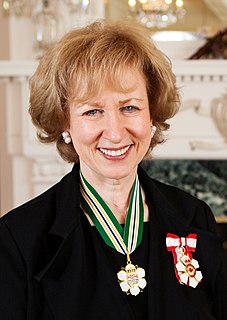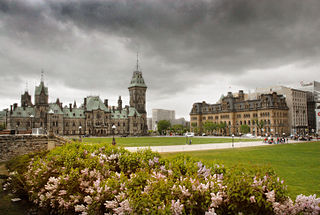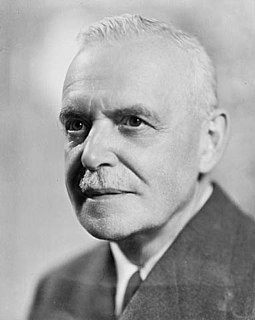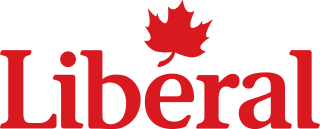
John Napier Wyndham Turner is a Canadian lawyer and politician who served as the 17th prime minister of Canada, in office from June 30 to September 17, 1984.

Martin Brian Mulroney is a Canadian politician who served as the 18th prime minister of Canada from September 17, 1984, to June 25, 1993. His tenure as prime minister was marked by the introduction of major economic reforms, such as the Canada-U.S. Free Trade Agreement and the Goods and Services Tax, and the rejection of constitutional reforms such as the Meech Lake Accord and the Charlottetown Accord. Prior to his political career, he was a prominent lawyer and businessman in Montreal.

Charles Joseph "Joe" Clark, is a Canadian elder statesman, businessman, writer, and politician who served as the 16th prime minister of Canada, from June 4, 1979, to March 3, 1980.

Allan Joseph MacEachen, was a Canadian politician, a many-time Cabinet minister, a Senator, and one of Canada's elder statesmen. He was the first deputy prime minister of Canada, serving from 1977 to 1979 and 1980 to 1984.

The Spouse of the Prime Minister of Canada is the wife or husband of the Prime Minister of Canada. Sophie Grégoire Trudeau is the wife of the 23rd and current prime minister, Justin Trudeau.

The history of Canada (1992–present) refers to the period immediately following the end of the Cold War, until present.
"You had an option, sir" was a phrase used by Brian Mulroney against John Turner during the English-language leaders debate in the 1984 Canadian federal election. The exchange is considered one of the only "knockout blows" in the history of Canadian political debate.

Avril Phaedra Douglas "Kim" Campbell is a Canadian politician, diplomat, lawyer and writer who served as the 19th prime minister of Canada from June 25, 1993, to November 4, 1993. Campbell was the first and, to date, only female prime minister of Canada.
There have been numerous depictions of Prime Ministers of Canada in popular culture.
The death and state funeral of Pierre Trudeau took place in September 2000. Pierre Trudeau was the 15th Prime Minister of Canada, serving from 1968 to 1984, with a brief interruption in 1979–1980. Trudeau died on September 28, 2000. His casket lay in state on Parliament Hill from September 30 to October 1 and the following day at Montréal City Hall. On October 3, a state funeral was held at Notre-Dame Basilica in Montreal.

Historical rankings of Canadian prime ministers are surveys conducted in order to construct rankings of the success of individuals who have served as Prime Minister of Canada. Ranking systems are usually based on surveys of academic historians, economists and political scientists. The rankings focus on the achievements, leadership qualities, failures and faults in office.

This article is the Electoral history of Louis St. Laurent, the twelfth Prime Minister of Canada (1948-1957).

This article is the Electoral history of Pierre Trudeau, the fifteenth Prime Minister of Canada.

This article is the Electoral history of John Turner, the seventeenth Prime Minister of Canada.

This article is the Electoral history of Brian Mulroney, the eighteenth Prime Minister of Canada.

This article is the Electoral history of Jean Chrétien, the twentieth Prime Minister of Canada.
















